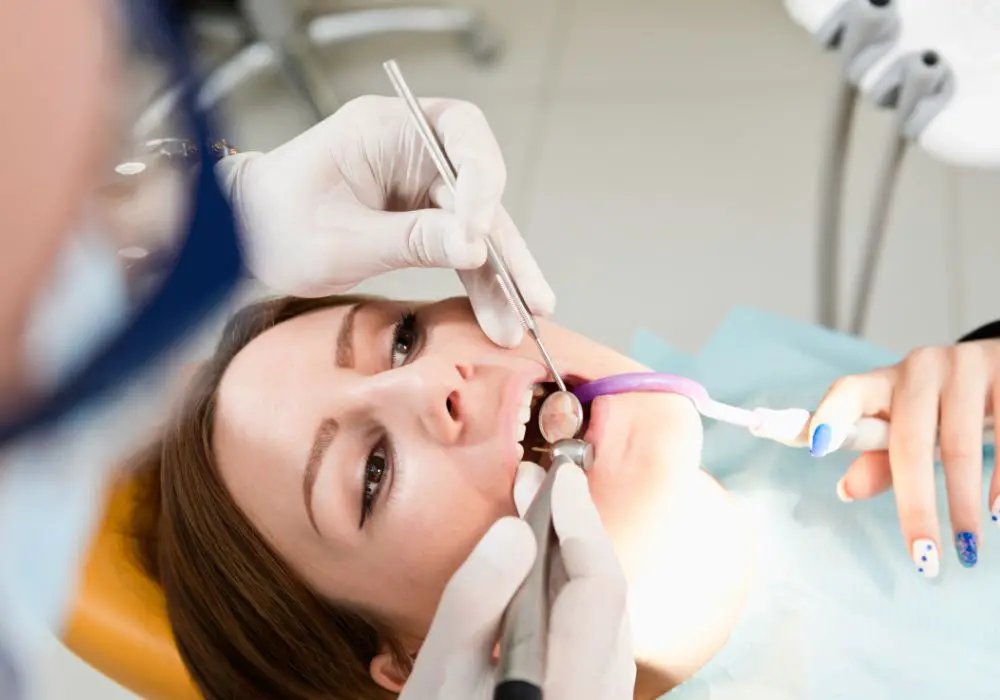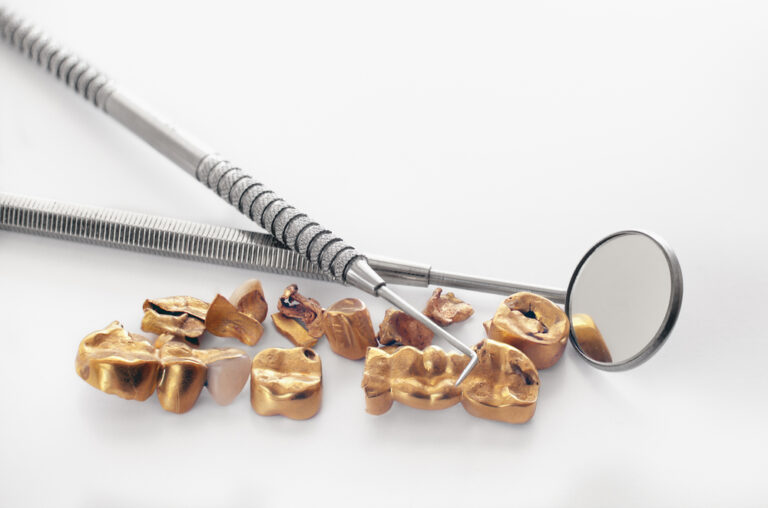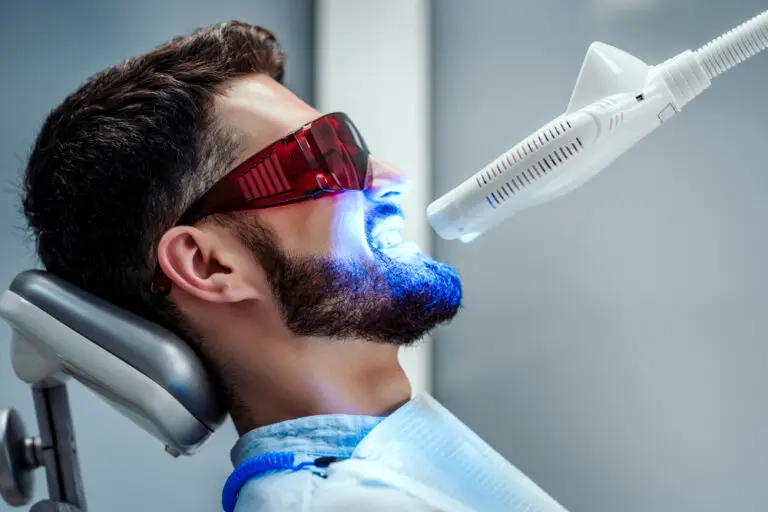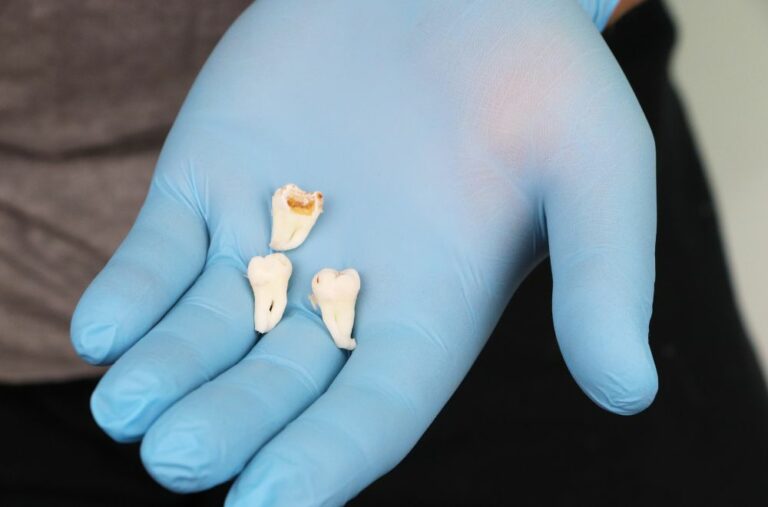Breastfeeding is a beautiful thing. Not only does it nourish your baby, but it also creates a bond between mother and child. That’s why plenty of moms ensure that they are in tip-top health while they’re lactating. That way, they can rest assured that their baby only gets the best nutrients.
But what if you’re a breastfeeding mother and you have to go through a dental procedure that requires you to get anesthesia? Will the medicine find its way into your breast milk, and will it harm your baby? Should you throw out your milk until the coast is clear?
In this guide, we’ll tell you how long to wait to breastfeed after dental anesthesia, if you even need to wait at all. We will also debunk some myths about the dangers of mothers breastfeeding while taking medication to care for themselves. Let’s jump right into it!
Don’t Believe the Old “Pump and Dump” Breastfeeding Myth

There’s an old belief that you should “pump and dump” your breast milk for a full day after getting any type of anesthesia. This practice comes from the belief that the medicine can make its way to breast milk and can have ill effects on your baby’s health.
But this belief is actually very outdated. Modern-day doctors and nurses don’t recommend this anymore, as most anesthesia options don’t leave harmful amounts of the medicine in milk.
See, only lipid-soluble medications with a lower molecular weight can contaminate a mother’s breast milk in high concentrations. Local anesthesia medicines have larger molecules, so it’s unlikely for them to get into your milk ducts.
If the medicine does cross into your milk, it will be in very small amounts—so small that there will be no clinical effect on your baby’s health.
Opioids like morphine, fentanyl, hydrocodone, and oxycodone—which are administered as epidural anesthesia curing natural or cesarean delivery—will also leave minuscule amounts of medicine in milk. Even anesthetics meant for sedation, like nitrous oxide, are safe for breastfeeding moms.
In short, anesthesia in general isn’t a threat to a mother’s milk. So, you’ll be completely fine getting a local anesthetic during your dental procedure.
Want to learn more about which anesthetics and analgesics are appropriate for new moms? Watch this quick, informative video to see which medications are well-suited for breastfeeding mothers:
How Long Should You Wait Before Breastfeeding?
Because it’s completely safe to breastfeed even after getting anesthesia, you can feed immediately after your treatment. Even the American Society of Anesthesiologists recommends mothers breastfeed as soon as possible after their procedures.
You don’t have to wait at all to breastfeed as long as you’re physically healthy. If your dental treatment is quick and simple and required local anesthesia (like lidocaine), you can breastfeed right away with no waiting time.
However, if you had a pretty serious treatment, like a wisdom tooth extraction, and needed to get general anesthesia, you might have to wait longer. Waiting around 4-6 hours after getting general anesthesia is best before feeding.
This isn’t because the medicine might find its way to your breast milk. Your milk is technically okay for feeding as soon as you’re out of surgery. The longer waiting time is only to give yourself more time to feel awake and alert before handling and feeding your baby.
Your trusted dentist may also give you specific instructions on how long to wait before breastfeeding again, depending on your unique case. Always follow their advice and guidance to ensure that your baby gets only top-quality breast milk.
Can Breastfeeding Moms Take Pain Relievers After Dental Work?

So, dental anesthesia is not a threat to your breast milk when you undergo a dental procedure. But what if you feel a bit of discomfort in your gums or mouth after the procedure? If you take analgesics and pain relievers, will it be bad for your milk?
No, most pain relievers won’t harm your milk, either. Your dentist should be able to provide you with a list of pain management medications that will work well for your case.
Some medications that are suitable for breastfeeding mothers include acetaminophen (aka paracetamol), ibuprofen, and naproxen. These meds work excellently for managing pain and discomfort, as long as only small doses are taken in a short duration.
However, there are a few analgesics that lactating mothers should avoid. These include aspirin, meperidine, and codeine.
These pain relievers can contaminate your milk, leading to detrimental sedating effects on your baby. So, avoid them at all costs. This shouldn’t be a problem since there are plenty of other options available in the market.
Don’t Delay Your Dental Procedures Just Because You’re Breastfeeding
Delaying your dental treatments just because you’re worried the anesthesia will contaminate your milk is a huge no-no. Not only are you worried about something that is proven to be safe, but you are also allowing your teeth and gums to deteriorate.
If you’re not in good health, you won’t be able to take care of your child properly. If there are cavities and gum diseases you ignore out of fear of dental anesthesia, you aren’t being fair to yourself or your baby.
While it’s understandable that the main priority is making sure your milk is healthy, you have nothing to worry about as far as dental anesthesia. You don’t have to “pump and dump” your milk. So, there won’t be any delays in feeding your child after you get dental work done.
If you’re still nervous about getting dental anesthesia while you’re lactating, contact your trusted healthcare providers. This can be your dentist, family doctor, or pediatrician. Confirm with them if it’s okay to breastfeed after getting dental work with anesthesia done to alleviate your anxieties.
Other Tips for Breastfeeding Moms Who Need Dental Work

Are you a new mom who wants extra tips for breastfeeding while going through a series of dental procedures? Don’t worry, we’ve got you. Here are some more tips for lactating mothers in need of dental work:
1. Communicate with your dentist
The most important thing to do as a lactating mom getting dental treatments done is to tell your dentist straight up that you are breastfeeding. That way, they know to give you safe anesthetics and prescription analgesics that won’t interfere with your breast milk.
Another tip is to call up your dentist’s office in the days leading up to your dental procedure. Ask them what anesthesia they plan to use on you. Then, call your pediatrician to double-check with them if it’s okay for breastfeeding. If they give you a green light, you can breathe easily.
2. Schedule your dental treatments wisely
It’s best to time your dental appointments with your baby’s feeding schedule. Before you head out to go to the dentist, breastfeed your infant so that you don’t have to right after your treatment.
If you’re still worried about meds that can get in the way of your milk, schedule appointments when your milk supply is low.
3. Consider storing express breast milk beforehand
If you’re about to get a major procedure—like surgery for a wisdom tooth extraction or a root canal treatment—consider pumping and storing express breast milk beforehand. That way, even if you’re separated from your baby for more than a few hours, they will have a solid supply of breast milk.
Collecting express breast milk is also a great idea if you’re not sure if the medicines you’re taking after your dental procedure are safe for your milk.
Make sure to store your express breast milk in sterilized bottles or bags. Label each one with the date you pumped the milk out. Always refrigerate your milk to keep it fresh.
4. Monitor your baby after breastfeeding
After your dental procedure—or any procedure that requires you to take medicine—always keep an eye out for how your baby responds to your breast milk. This ensures that they don’t have an adverse reaction to the milk you feed them.
Some signs to look out for include unusual diaper output and lethargy or a lack of alertness. If you notice these in your infant, bring them to your family doctor right away.
Conclusion
It’s totally understandable for mothers to be cautious with what medicine is administered to them when they’re breastfeeding. For many moms, their baby’s health comes first. But there’s no reason to be scared of dental anesthesia getting in the way of a mother’s milk.
Mothers who need dental work will benefit a lot from local anesthesia to make their experience more pleasant and comfortable. The good news is that you can still breastfeed your infant even if you were injected with a local anesthetic, as the medicine won’t harm your breastmilk.
In a nutshell, you can breastfeed your baby as soon as you feel up to it after your dental treatment. Just make sure you feel well physically before doing so. You can even take many kinds of pain relievers to manage pain from the procedure. They won’t find their way to your milk, too.
Got any more questions about breastfeeding after getting dental work done? Leave a comment down below, and we’ll get back to you as soon as we’re able.






